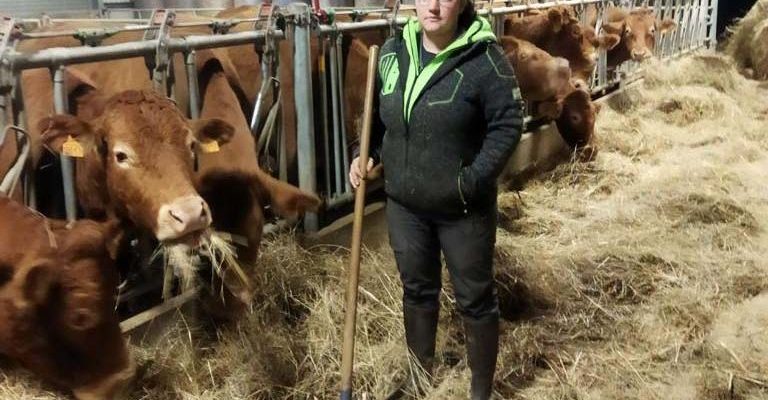“We had never been overdrawn since we moved in 2016.” In the south of Haute-Garonne, in the small village of Cassagnabère-Tournas, Anaïs Loubet has always made it a point of honor to pay the bills for her farm with rubbish. But that was before. Before “9”, the valiant breeding bull of this breeding of 165 cattle, found himself really woozy, one morning in “early October”. “He was unable to get up. His mucous membranes were infected and his tongue was so swollen that he couldn’t even put it in and he couldn’t eat for two weeks,” says the young farmer.
Verdict from the local veterinarian: “9” contracted Epizootic Hemorrhagic Disease (MHE), a virus that some call “cow Covid” and which made its first official appearance in France on September 20.
“We didn’t perceive anything at all”
According to the Ministry of Agriculture, 3,704 outbreaks have since been identified, in 20 departments, mainly in the South-West. With the cold weather of winter, the disease, transmitted by biting midges, came to a halt. But the promised aid also seems frozen. “We didn’t perceive anything at all. If the virus had spread towards the north and the large livestock lands, there would have been a slightly more rapid reaction,” grumbles Anaïs who this Tuesday morning joined the procession of other angry Haut-Garonnais farmers in the streets of Saint-Gaudens, south of Toulouse.
Because obviously, the virus did not stop at the male of the herd. Thirty other adult animals from the herd were affected. Some cows were content to be “flat”, others to lose abnormally weight and limp, still others remained paralyzed for several days by this new type of rheumatism, unable to properly nurse their calves. And the “veterinary costs started to explode”: 7,000 euros to buy, “without even seeing him”, another bull to replace “9” in the middle of the breeding period. Mountains of antibiotics and anti-inflammatories to buy to supply a stable transformed into an infirmary. There is in fact no vaccine against MHE, only the symptoms can be treated.
“At 20 euros per blood test”, the bill explodes
Anaïs also has “20 wanderers” who should have left for Italy a long time ago. But they are still there, eating fodder that was not intended for them, because to be exported to the other side of the Alps, they would have to be “negative”. However, we know in humans with Covid, “a bovine can remain positive for five months”. “And at around 20 euros per blood test”, the farmer does not have the means to carry out the check every day.
“We no longer have cash,” laments the farmer. “This story will weaken farms that were doing well and eliminate those that were on hold.” Especially since, according to specialists, unless there is a particularly harsh winter, contamination will return with spring.

